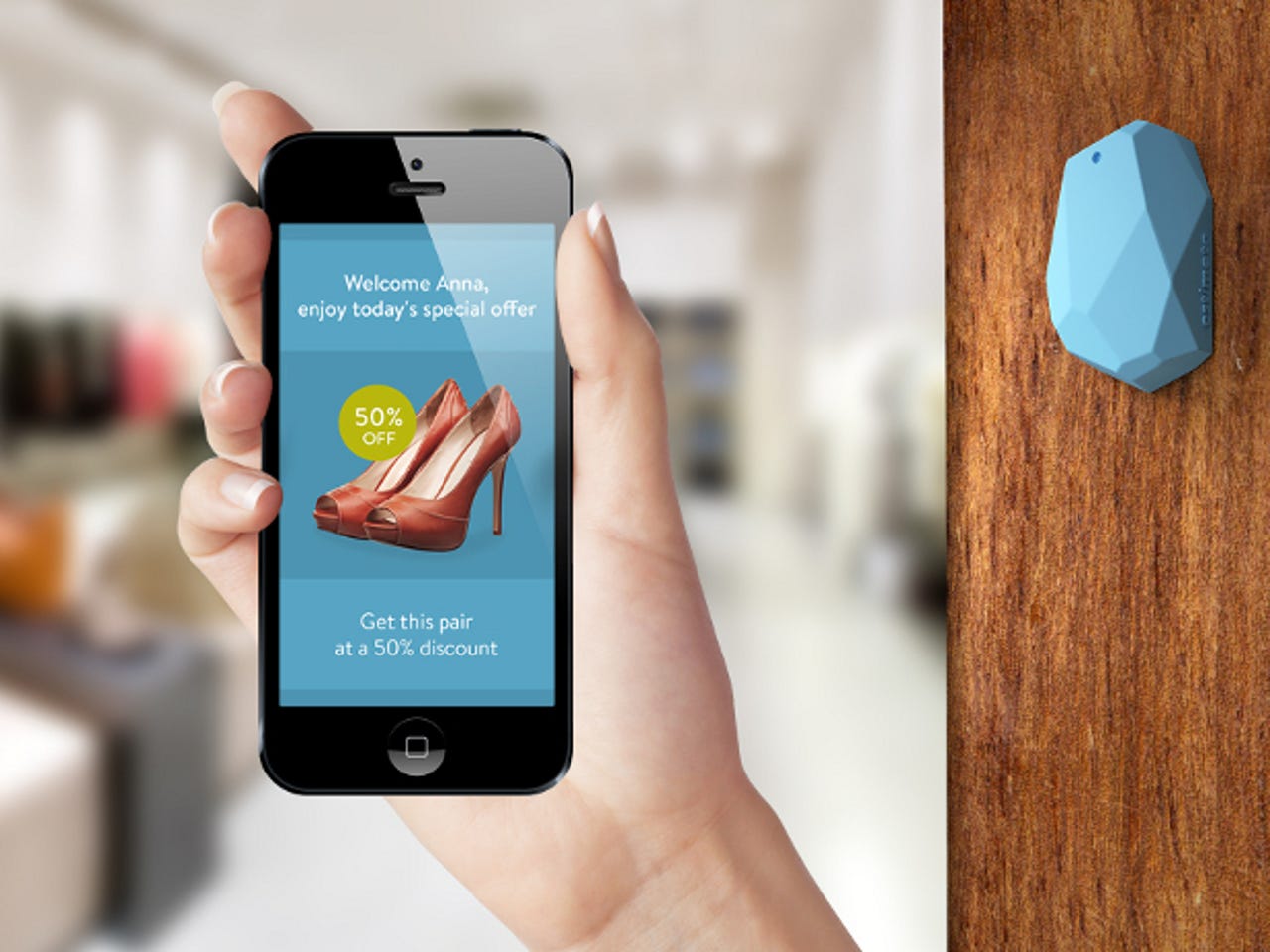What is Apple iBeacon? Here's what you need to know


What is iBeacon?
iBeacon is Apple's implementation of Bluetooth low-energy (BLE) wireless technology to create a different way of providing location-based information and services to iPhones and other iOS devices. iBeacon arrived in iOS7, which means it works with iPhone 4s or later, iPad (third generation and onwards) iPad mini and iPod touch (fifth generation or later). It's worth noting the same BLE technology is also compatible with Android 4.3. and above.
How does it work?
The beacons themselvers are small, cheap Bluetooth transmitters. Apps installed on your iPhone listen out for the signal transmitted by these beacons and respond accordingly when the phone comes into range.
For example, if you pass a beacon in a shop, the retailer's app (assuming you have it installed) could display a special offer alert for you. On a visit to a museum, the museum's app would provide information about the closest display, using your distance from beacons placed near exhibits to work out your position. As such iBeacon could be a much better option for in-door mapping - which GPS struggles with.
What real world iBeacon examples are there?
It's early days for iBeacon – Apple has only been testing it since December last year in its US retail stores. Virgin Atlantic is also conducting trial of iBeacon at Heathrow airport, so that passengers heading towards the security checkpoint will find their phone automatically pulling up their mobile boarding pass ready for inspection. In the London area retail giant Tesco has been testing it in a store, as is Waitrose, while Regents Street is working with retailers to test the technology too.
What actually is a beacon?
Any iOS device that supports sharing data using Bluetooth low energy can beam signals to an iBeacon app. For example, an iPad can both emit and receive an iBeacon signal. But other than this Apple doesn't make the beacons itself - these come from third-party manufacturers – for example the Virgin Atlantic trial is using hardware from Estimote.
Whether you'll pick up a signal from a beacon will also vary: walls, doors, and other physical objects will shorten signal range (as Apple notes the signals are also affected by water, which means the human body itself will affect the signals.)
Does iBeacon mean I'll be bombarded with ads wherever I go?
That rather depends on how many apps you have. The beacons themselves won't do much unless you have the corresponding app downloaded to your iOS device, so you should be able to browse in relative peace. Also, iOS doesn't deliver region notifications until certain threshold conditions are met – Apple's developer notes state the device has to cross an iBeacon boundary, move away from the boundary by a minimum distance, and remain at that minimum distance for at least 20 seconds before the notifications are reported.
That should reduce the pesting at least a bit. But there is certainly a risk of fatigue if you're being hassled all the way around the mall.
Can I make it stop?
Yes - as Adrian Kingsley-Hughes points out you can opt out by changing permissions under Location Services for the relevant app (accessed via Settings > Privacy > Location Services), by switching off Bluetooth, or by uninstalling that particular app.
Why is iBeacon such a big deal?
The technology could be a big step towards mobile payments, something smartphone makers have been looking at for a long time without getting it right. Running the technology which breaks through and becomes the standard is going to be very lucrative. As such iBeacon is not the only game in town - PayPal is working on its own 'PayPal Beacon' technology - expected next year - which will allow shoppers to 'check-in' and pay for goods from the PayPal account on their phone. Near Field Communications (NFC) is another technology trying to find an niche (right now with limited to success) in mobile payments, plus plenty of others.
Depending on how iBeacon evolves and is adopted it could form an important part of Apple's ecommerce and mobile payments effort. For example, the combination of iBeacon and Passbook could allow you to get sent a coupon while in a store and buy something without ever seeing a member of staff. Equally, shoppers may find the whole thing slightly unnerving and ignore it altogether.